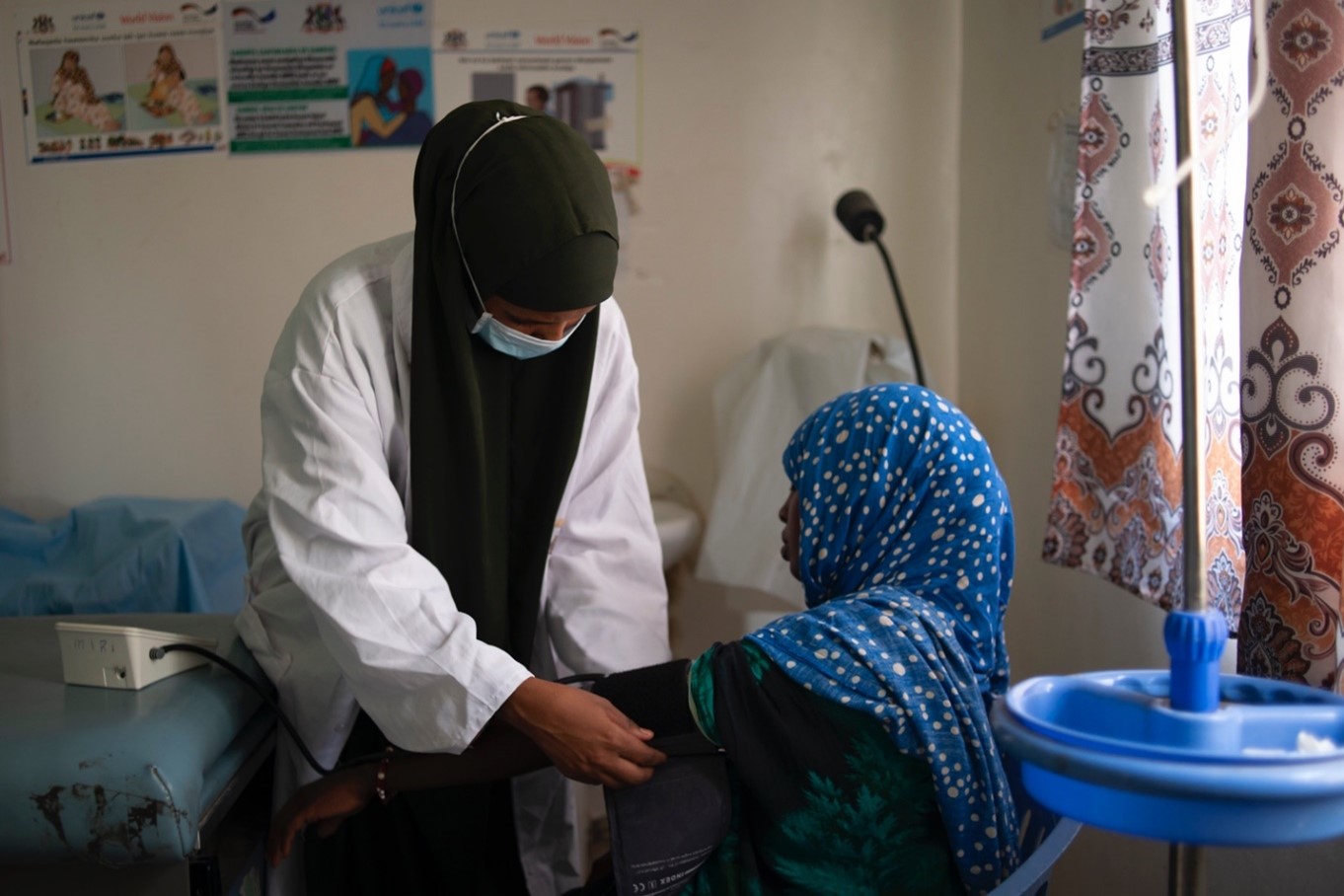Mogadishu 5 May 2023 – The World Health Organization (WHO) Country Office in Somalia and the Federal Ministry of Health have come together on the International Day of the Midwife to recognize the essential role of midwives in delivering quality health care services and reducing preventable maternal and neonatal morbidity and mortality.
Befitting to this year's International Day of Midwife theme of "Together Again: From Evidence to Reality”, WHO Is supporting the Ministry of Health to launch a standardized national basic emergency obstetric and newborn care (BEmONC) training programme across the country. Somalia is considered one of the most dangerous places to give birth, where every 25th mother dies while giving birth, compared to one in 49 in comparable low-income countries, and according to the 2023 report on trends in maternal mortality 2000 to 2020, Somalia had a maternal mortality ratio of 621 per 100 000 live births in 2020. The high maternal mortality ratio is attributed to health system failures resulting in delays in seeking and receiving care, poor quality of care, shortages of essential medical supplies, and poor accountability of health systems.
"Enhancing the skills and knowledge of health workers, especially midwives and nurses, using manual is critical for saving lives and improving the health and well-being of mothers and children in Somalia”, commented Dr Al-Umra Umar, Programme Lead for Reproductive, Maternal, Neonatal, Child and Adolescent Health at the WHO Somalia Country Office, while highlighting the importance of the skilled health workforce.
 Early identification of risk factors for pregnancy and delivery complications can prevent maternal and newborn deaths. Credit: WHO/Somalia
Early identification of risk factors for pregnancy and delivery complications can prevent maternal and newborn deaths. Credit: WHO/Somalia
A standardized BEmONC training package is being developed to train midwives and nursing staff at health facilities to manage major causes of maternal and newborn mortality, such as haemorrhage, infection, pre-eclampsia/eclampsia, obstructed labour, and newborn asphyxia. The training package will also help improve the readiness of health facilities to deliver good quality obstetric and newborn care.
Dr Naima Abdulkadir, Maternal and Reproductive Health Manager from the Federal Ministry of Health, while thanking WHO for their continued support, said, “The roll-out of standardized BEmONC training nationally will benefit mothers and newborns and is a significant step towards providing harmonized high-quality maternal and newborn health services in Somalia”.
For additional information, please contact:
Kyle DeFreitas
External Relations Officer
This e-mail address is being protected from spambots. You need JavaScript enabled to view it
Fouzia Bano
Communications Officer
This e-mail address is being protected from spambots. You need JavaScript enabled to view it
Note to editors
Globally, about 45% of maternal and 36% of neonatal deaths occur during the first 24 hours after birth. These deaths are mainly preventable if BEmoNC services are available at all health facilities. However, the 2016 SARA (service availability and readiness assessment) survey conducted in Somalia illustrated that in 2016 BEmONC services were only available in 45% of urban health facilities and 20% of rural health facilities. Only 32% of births had skilled health care provider support, and 21% were delivered at a health facility. Currently, WHO is conducting another survey using the Harmonized Health Facility Assessment (HHFA) tool to better understand the coverage of BEmONC services and identify service gaps in emergency obstetric and newborn care. To respond to these challenges, WHO Somalia supports the Federal Ministry of Health in improving the country's reproductive, maternal, neonatal, child, and adolescent health services through various means such as policy, norms and standards settings, guideline development, leadership training, capacity-building of health care workers, and implementation of evidence-based interventions. Although progress has been made, the country remains off-track for most of the health-related Sustainable Development Goals (SDG3), particularly targets 3.1, 3.2, 3.7 and 3.8.
Related links
WHO pilots first-ever programme leadership and management training for RMNCAH in Somalia




